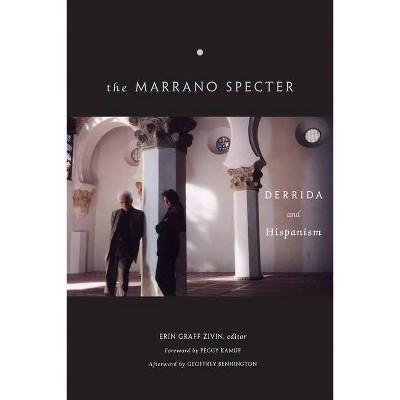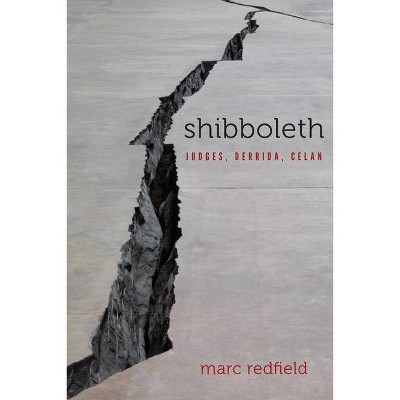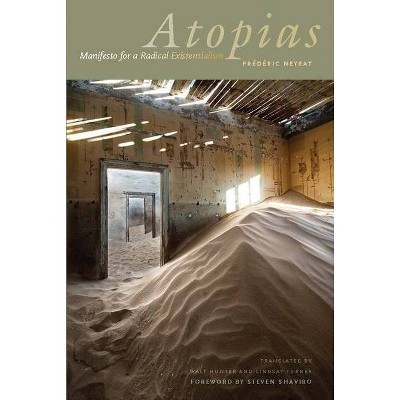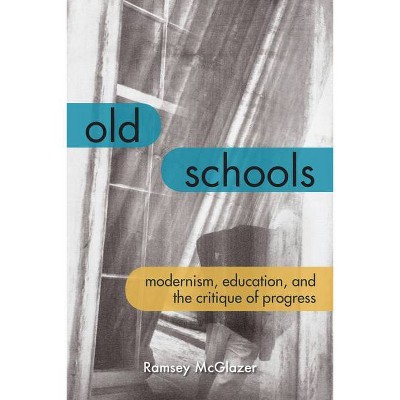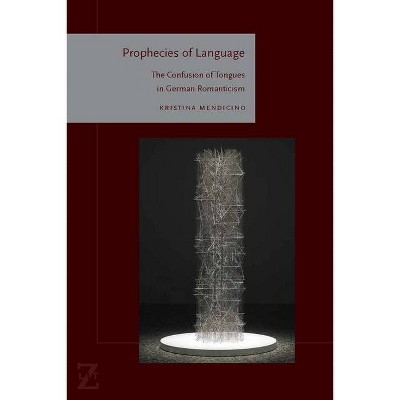Anarchaeologies - (Lit Z) by Erin Graff Zivin (Paperback)
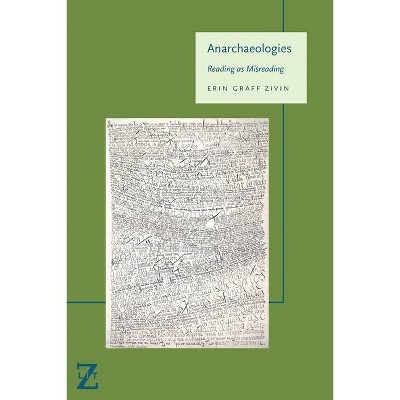
Similar Products
Products of same category from the store
AllProduct info
<p/><br></br><p><b> About the Book </b></p></br></br>How do we read after the so-called death of literature? Graff Zivin elaborates <i>anarchaeological</i> reading: reading for the blind spots, errors, points of opacity or untranslatability. Through interdiscursive exposure between continental philosophy and Argentine literature, art, and film, Graff Zivin shows how anarchaeological reading radicalizes the possibility of justice.<p/><br></br><p><b> Book Synopsis </b></p></br></br><p>How do we read after the so-called death of literature? If we are to attend to the proclamations that the representational apparatuses of literature and politics are dead, what aesthetic, ethical, and political possibilities remain for us today? Our critical moment, Graff Zivin argues, demands <i>anarchaeological reading</i>: reading for the blind spots, errors, points of opacity or untranslatability in works of philosophy and art. <p/>Rather than applying concepts from philosophy in order to understand or elucidate cultural works, the book exposes works of philosophy, literary theory, narrative, poetry, film, and performance art and activism to one another. Working specifically with art, film, and literature from Argentina (Jorge Luis Borges, Juán José Saer, Ricardo Piglia, César Aira, Albertina Carri, the <i>Internacional Errorista</i>), Graff Zivin allows such thinkers as Levinas, Derrida, Badiou, and Rancière to be inflected by Latin American cultural production. Through these acts of interdiscursive and interdisciplinary (or indisciplinary) exposure, such ethical and political concepts as identification and recognition, decision and event, sovereignty and will, are read as constitutively impossible, erroneous. Rather than weakening either ethics or politics, however, the anarchaeological reading these works stage and demand opens up and radicalizes the possibility of justice.</p><p/><br></br><p><b> From the Back Cover </b></p></br></br><p>"Erin Graff Zivin is one of the most accomplished and original scholars in the fields of Latin American literature and Critical Theory today. <i>Anarchaeologies</i> is an extraordinarily relevant theoretical intervention, that argues in favor of a <i>marrano</i>, anarchaeological reading practice invested in guarding and unsettling the ethical demands posed onto us by a wide array of textual formations through its errors, secrets, misunderstandings, zones of opacity, and blind spots. It is also a highly enjoyable read: a book that is well written and argued in spite of the considerable complexity and sophistication of its philosophical arguments"--Mariano Siskind, Harvard University <p/>"<i>Anarchaeologies</i> offers inventive and illuminating readings of Latin American and European fiction, film, philosophy, and criticism; the selection of sources is interesting and interdisciplinary, an appealing combination of genres and modes. The book is both highly readable and highly rewarding."--Rei Terada, University of California, Irvine <p/>How do we read after the so-called death of literature? If we are to attend to the proclamations that the representational apparatuses of literature and politics are dead, what aesthetic, ethical, and political possibilities remain for us today? Our critical moment, Graff Zivin argues, demands <i>anarchaeological reading</i>: reading for the blind spots, errors, points of opacity or untranslatability in works of philosophy and art. <p/>Rather than applying concepts from philosophy in order to understand or elucidate cultural works, the book exposes works of philosophy, literary theory, narrative, poetry, film, and performance art and activism to one another. Through these acts of interdiscursive and interdisciplinary (or indisciplinary) exposure between continental philosophy and Argentine literature, art, and film, ethical and political concepts such as identification and recognition, decision and event, sovereignty and will, are read as constitutively impossible, erroneous. Rather than weakening either ethics or politics, however, the anarchaeological reading these works stage and demand opens up and radicalizes the possibility of justice. <p/><b>Erin Graff Zivin</b> is Professor of Spanish and Portuguese and of Comparative Literature at the University of Southern California.</p><p/><br></br><p><b> Review Quotes </b></p></br></br><br><i>Anarchaeologies</i> offers inventive and illuminating readings of Latin American and European fiction, film, philosophy, and criticism; the selection of sources is interesting and interdisciplinary, an appealing combination of genres and modes. The book is both highly readable and highly rewarding.<b>---Rei Terada, University of California, Irvine, <i></i></b><br><br>Erin Graff Zivin is one of the most accomplished and original scholars in the fields of Latin American literature and Critical Theory today. <i>Anarchaeologies</i> is an extraordinarily relevant theoretical intervention, that argues in favor of a <i>marrano</i>, anarchaeological reading practice invested in guarding and unsettling the ethical demands posed onto us by a wide array of textual formations through its errors, secrets, misunderstandings, zones of opacity, and blind spots. It is also a highly enjoyable read: a book that is well written and argued in spite of the considerable complexity and sophistication of its philosophical arguments.<b>---Mariano Siskind, Harvard University, <i></i></b><br><p/><br></br><p><b> About the Author </b></p></br></br><b>Erin Graff Zivin</b> is Professor of Spanish and Portuguese and of Comparative Literature at the University of Southern California. She is the author of <i>Figurative Inquisitions: Conversion, Torture, and Truth in the Luso-Hispanic Atlantic </i>(Northwestern University Press, 2014, winner of the 2015 Award for Best Book, Latin American Jewish Studies Association) and <i>The Wandering Signifier: Rhetoric of Jewishness in the Latin American Imaginary</i> (Duke University Press, 2008).
Price History
Cheapest price in the interval: 28.49 on October 22, 2021
Most expensive price in the interval: 28.49 on November 8, 2021
Price Archive shows prices from various stores, lets you see history and find the cheapest. There is no actual sale on the website. For all support, inquiry and suggestion messagescommunication@pricearchive.us
